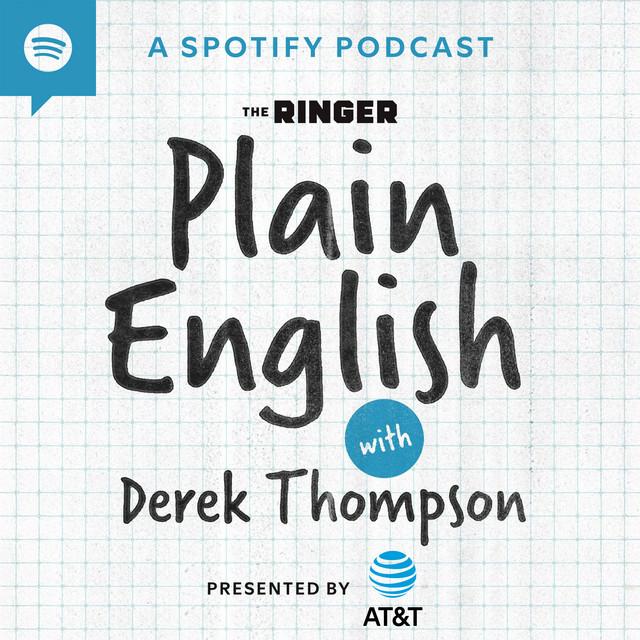Hosts
About the episode
Youth unemployment is rising. Hiring is freezing up. The housing market is a mess. How did things get so bad for young people in the economy? And are things as bad as they seem? Michael Batnick and Ben Carlson of the Animal Spirits podcast join the show to discuss.
If you have questions, observations, or ideas for future episodes, email us at PlainEnglish@Spotify.com.
In the following excerpt, Derek, Ben Carlson, and Michael Batnick examine the abysmal state of the housing market for first-time homebuyers and dive into the data on the unemployment rate for young people.
Derek Thompson: So I want us to do a little point-counterpoint. I want us to start off by making the clearest and most devastating case that American economics, society, even politics, is decidedly biased against young people today. And then I want to give us ample chance to interrogate that premise. So, Ben, let’s kick things off with your essay, which was appropriately and pithily entitled “Are Young People Screwed?” Kick us off with the opening statement. What’s the strongest reason to think that, in fact, yes, Ben, young people are screwed today?
Ben Carlson: I mean, the biggest and easiest one is the housing market. There’s never been a worse time to be a first-time homebuyer. The [National Association of Realtors] just said this week that the average age or median age of a first-time homebuyer is now 40 years old, and it’s the lowest share ever. It’s like 21 percent. Housing prices went up 50 percent this decade alone. We pulled forward, I don’t know, 20 years’ worth of housing market gains. Mortgage rates doubled. So people are just pushing off becoming an adult further and further into the future. Student loans. It’s more expensive to buy a car these days. Just the general inflation. Young people had to live through COVID. I feel like I could keep checking off boxes, but it’s been a very difficult decade to be a young person.
Thompson: Ben, can we slow down and talk a little bit about why the housing market is so shitty for first-time homebuyers? I mean, it would be one thing if we were coming off, say, 10 years of economic depression in which young people were getting poorer and poorer and the stock market wasn’t going up and basically things were just terrible on the wage front, and so no one had any money to put into that first down payment. But that’s not really the situation. Real wages have not had the strongest five years, but they’re kind of starting to come back. We’ve seen the stock market really grow, and more young people today are invested in the stock market. I think we’ll talk a little bit more about stocks in a second. But why, in the biggest picture, is the first-time homebuyer market just so putrid [and], as you said, the share of overall home-buying just 21 percent of the market?
Carlson: Part of it is also demographics. There are more 30-year-olds than ever. People in the 30-40 age range, that’s the big rabbit going through the snake right now. And plus you have 40 percent of all homeowners own their house clear and outright. So you’re competing against baby boomers who have all this equity, all this wealth, and there’s just a lack of supply because people with 3 percent mortgages don’t want to move. And so you have this weird housing dynamic where you have a lot of people who want to own. There’s just not enough supply.
So even if they want to try to buy, there’s probably not a house that they want to get. And then the people they’re competing against have way more money than them. And so it’s just a double whammy of more people wanting to buy, not enough supply, mortgage rates that are too high, and housing prices that are too high. So it’s like all this confluence of events, it’s this perfect storm where it’s just—there’s really no good answer right now for young people who want to get that first home, unless you just spend an exorbitant amount of your household budget on a mortgage payment.
Thompson: Yeah, Michael, as I see it, the story really goes back to 2007, 2008. You’ve got the Great Recession; you’ve got the crash of the housing market. You have years where construction is essentially in an industrial depression. We lose so many construction workers, so many small construction companies. So you’ve got this housing shortage coming into the late 2010s, and just as the housing market is kind of getting back online, bam, you’ve got a pandemic. People start moving, moving into bigger houses. You’ve got this huge run-up in home prices in 2021, 2022. Then interest rates spike.
Now your average mortgage if you’re a new homebuyer is like two, three times higher than it would’ve been 10 years ago. As a result, older homeowners aren’t moving. They’re staying in their homes, which means that there’s less coming available in the resale market. And you just put it all together, and it’s just such a shitty time to be a first-time homebuyer. Anything that I said strike you as incorrect, or something that I missed in terms of trying to understand the big picture of just why things seem so bad for basically anybody under 40 trying to buy their first house?
Michael Batnick: No, you nailed it. It is a peanut butter and poopy sandwich. There’s no doubt about it. But let me answer your question with another question. Two things about: Are young people screwed? One rhetorical and one actual. When haven’t young people been screwed? Show me a point in time where young people were ready to take over the world. OK, secondly, which young people are we talking about? Because Drake Maye, for example—shout-out to the Podfather—is doing quite well. But in all seriousness, the question is this: Are they screwed today? Are young people screwed in November of 2025? The answer, we have data. Now the data’s a bit stale at this point, thanks to the government shutdown, but the data says no. You hear people talk all the time: The unemployment rate for young people 22 to 27 is twice the overall unemployment rate.
OK, fine. But what is it historically? So right now, as of the most recent data that we have, it’s 7.4 percent for peoples 22 to 27 versus 4 percent for the rest of us, for all of us. So that [3.4] percent spread, hey, guess what! What do you think the average is going back to 1990? It’s 3.8 percent. So they’re actually doing better off based on this one piece of data. So is now an awesome time to be looking for a job as a young person? No. Is it going to be better in 12 months from now for reasons that we’re going to discuss? Probably not. But are young people so much worse off than when we were young people once upon a time? Because when we graduated, the unemployment rate for young people was 16 percent. And guess what. I got kicked out of college twice. You think it was great for me being a young person in the labor force? No, it wasn’t very good, Derek.
This excerpt has been edited and condensed.
Host: Derek Thompson
Guests: Michael Batnick and Ben Carlson
Producers: Devon Baroldi

